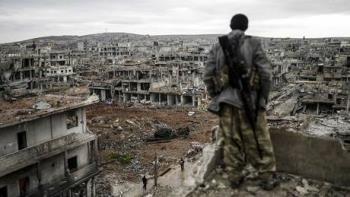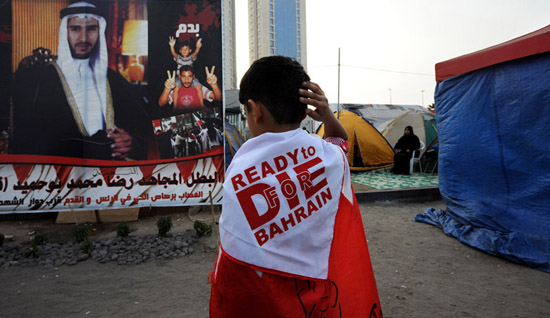Alwaght- Bahraini top Shiite clerics denounced the country’s move to issue personal status law for the followers of the Shiite sect.
Four of the most prominent Bahraini clerics signed a letter stressing that any approval of such a law should be conditioned to confirmation by the Shiite religious leaders.
"Issuing a family law like this will not ensure abiding by the tenets of the [Shiite] sect and prevent violations, for if it were to do so, its supporters wouldn't have accepted to issue it without the approval of the sect's high religious authority," noted Sheikh Isa Ahmad Qassim, Sayed Abdullah al-Ghoureify, Sheikh Abdulhussein al-Sitri and Sheikh Mohammad Saleh al-Rabiei in a statement issued on Saturday.
Bahraini Justice Ministry recently issued a new personal status law for the Sunni minority in the country. However Justice Minister Khalid bin Ali Al Khalifa declared that the Jafari (Shiite) section of the personal status law will be issued soon and in a separate manner.
The move faced rejection by Shiite clerics who say the law could possibly contradict religious orders and will not be followed by the Shiite majority.
The top Shiite clerics in Bahrain demand that the said law be issued with the approval of the Shiite high religious authority in the country, yet the authorities refuse to do so.
The signatories of the aforementioned statement highlighted that the followers of a certain religious sect cannot have their marriage, divorce, family, inheritance affairs be governed by rules and regulations that would violate their sect's laws, and they cannot accept submitting to a law that might allow the tampering of their religious "family related" rights.
"Any law that might lead to such outcomes cannot be accepted by the followers of the doctrine of Ahlulbayt [family of the Prophet Mohammad (PBUH)] at all," they further stressed.
The Shiite majority in Bahrain, ruled by the minority Sunnis, has been protesting unequal rights for years. Their top leader, Sheikh Isa Qassim was stripped of his Bahraini nationality after protests increased in 2011 cultivating in a violent crackdown by the ruling regime aided by Saudi and Emirati forces that left dozens of people dead and many other injured.



























